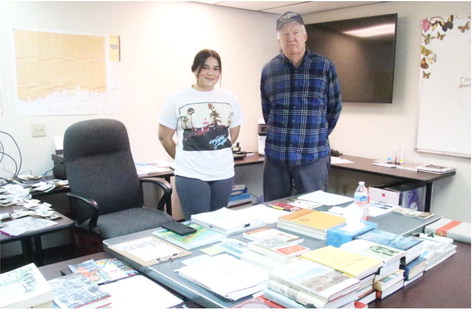USDA Stresses Food Security Measures
As part of the U.S. Department of Agriculture’s participation in the Asia-Pacific Economic Cooperation Forum U.S. Host Year, Agriculture Secretary Tom Vilsack chaired the Food Security Ministerial and highlighted the relationship between agri-food systems and climate change, food security and sustainable productivity growth last week.
Building on USDA’s 2023 APEC agricultural subtheme, “Together Achieving Sustainable, Equitable, and Resilient Agri-Food Systems,” Secretary Vilsack led engagement with APEC member economy leaders, delegates, and industry representatives on the importance of building a more resilient and interconnected region that advances broadbased economic prosperity through sustainable, resilient agri-food systems. He also emphasized the important role innovation plays in seeking solutions through climate change adaptation and mitigation, sustainable agricultural productivity growth and global food security.
“The time is now, and together we can achieve sustainable, equitable, and resilient agri-food systems. The APEC shares a commitment to addressing global food needs now so that we can build resilient systems that can absorb future shocks, like pandemics, conflict, severe weather, and climate change,” said Vilsack. “We must work to collaborate with other nations to share best practices and information as we all learn more about how to mitigate and adapt to a changing climate, and in order to produce more, while minimizing environmental impacts, we must leverage innovation and foster new ways of doing things.”
Vilsack shared with APEC member economies U.S. leadership on climate solutions in agriculture, including USDA’s Partnerships for Climate-Smart Commodities funding opportunity, which is investing more than $3 billion to support 141 projects that will expand markets for climate-smart commodities, leverage greenhouse gas benefits, and provide direct, meaningful benefits to producers of all sizes in all 50 states. The United States will be sharing information, best practices, and resources with the international community through the International Climate Hub.
During APEC, USDA also announced two new initiatives: * Food Security Dashboard USDA is standing up a new Food Security Dashboard to provide decision-makers with access to a wide range of indicators reflecting several facets of food and nutrition security, such as: indicators of food insecurity, trade disruption vulnerability, importance of imports to food security, daily caloric intake per person, and calorie content of a diet broken down by food groups. The dashboard provides policymakers with information on the role of trade in food security and gives a roadmap to which foods are needed and how to get countries those foods. It also provides policymakers with a greater grasp of the data by presenting it in an easy to-understand and analyze format.
* Interim Instructional Field Guides USDA will publish approximately 17 highly concentrated interim field guides resulting from workshops, field trips, knowledge sharing initiatives, and best practices observed throughout the APEC U.S. Host Year. The interim field guides will be available as a full collection by the beginning of the 2024 at USDA.gov/apec-guides, after the conclusion of the APEC U.S. host year. USDA has published the first of three guides: A Three-Tiered Approach to Increasing Sustainable Water and Food Security in the APEC Region (PDF, 741 KB) and Food Safety Cooperation Forum Public-Private Innovation Dialogue (PDF, 931 KB) and Approaches to Decreasing Agriculturally Generated Greenhouse Gas Emissions in APEC (PDF, 1014 KB).

